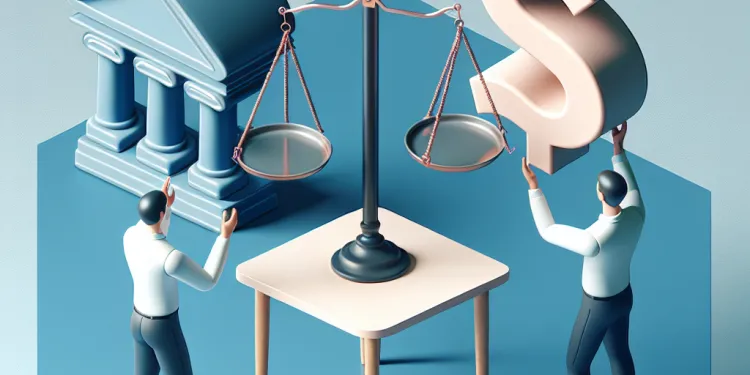
Find Help
More Items From Ergsy search
-
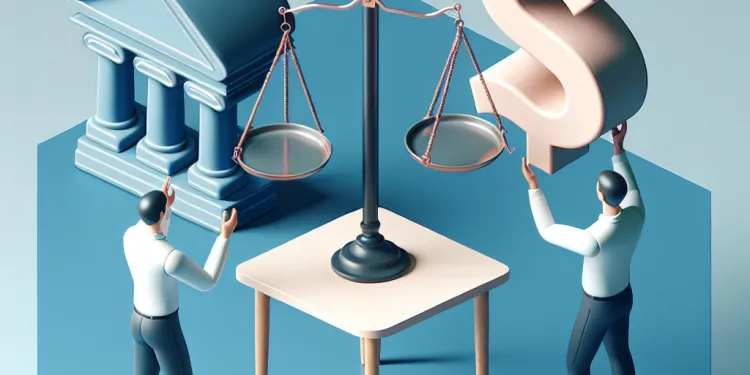
How can disputes over banking fees be resolved effectively?
Relevance: 100%
-
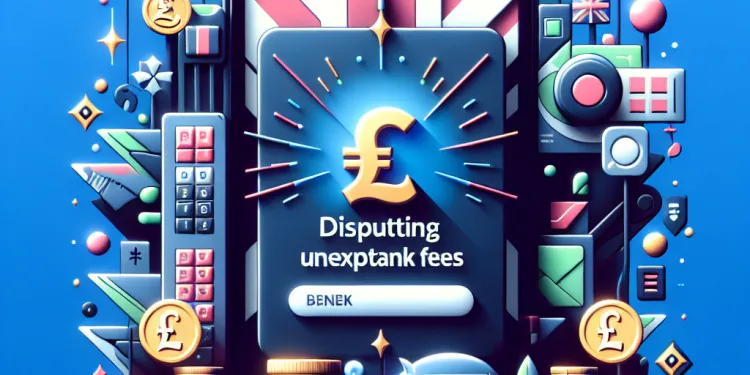
Can customers dispute unexpected banking fees?
Relevance: 89%
-

How can a boundary dispute be resolved?
Relevance: 59%
-

Calls for Greater Transparency in Banking Fees as Complaints Rise
Relevance: 58%
-

Is mediation a good option for resolving boundary disputes?
Relevance: 56%
-

How can valuation disputes in buyouts be resolved?
Relevance: 55%
-

Is arbitration a viable option for resolving director disputes?
Relevance: 54%
-

How long do boundary disputes typically take to resolve?
Relevance: 54%
-

Do online banks have lower fees than traditional banks?
Relevance: 54%
-
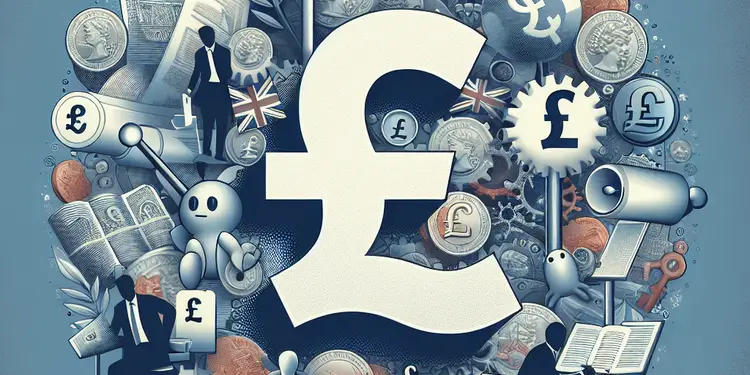
What is the role of a company’s articles of association in resolving disputes?
Relevance: 54%
-
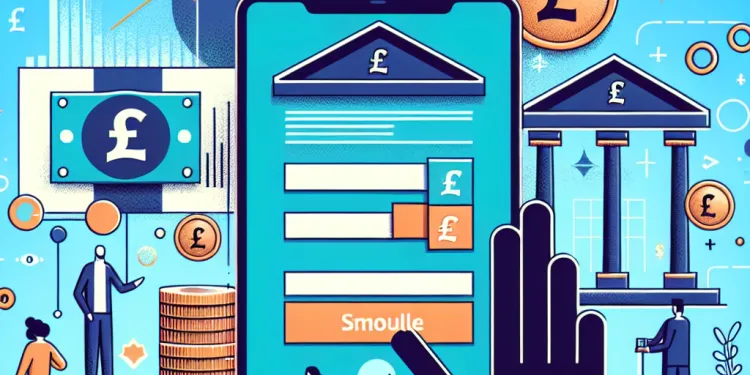
What feedback do customers give regarding banking fees?
Relevance: 53%
-

Do all banks have the same fee structures?
Relevance: 53%
-
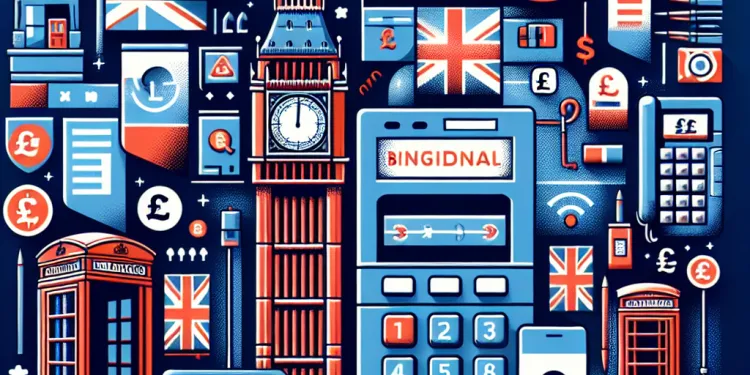
What actions are consumer rights groups taking regarding banking fee transparency?
Relevance: 52%
-
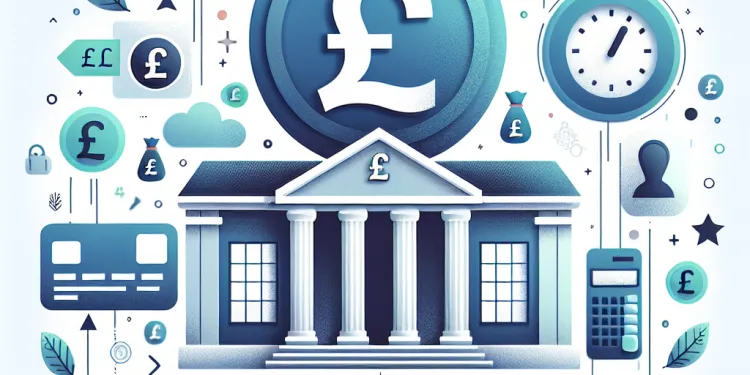
How do banking fees impact financial inclusion?
Relevance: 52%
-
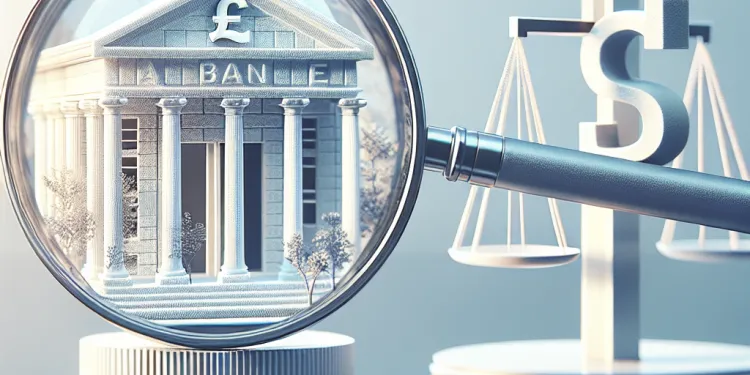
Why is there a call for greater transparency in banking fees?
Relevance: 52%
-
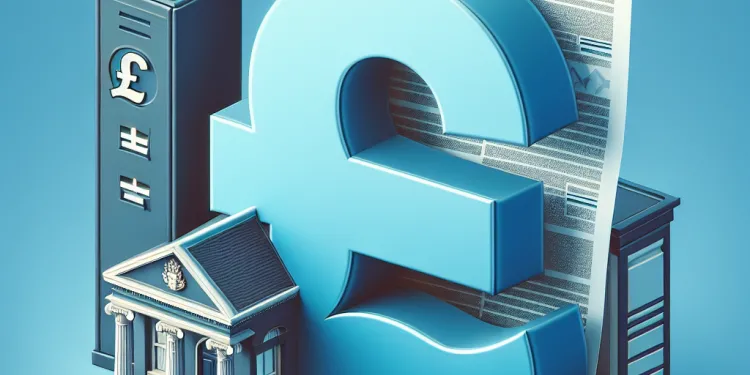
Why are some banking fees unexpectedly high?
Relevance: 52%
-

How can banks improve transparency regarding their fees?
Relevance: 52%
-
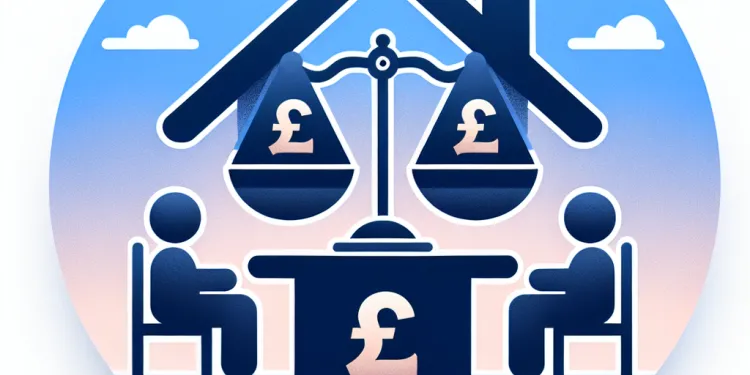
Is mediation an option to resolve eviction disputes?
Relevance: 51%
-
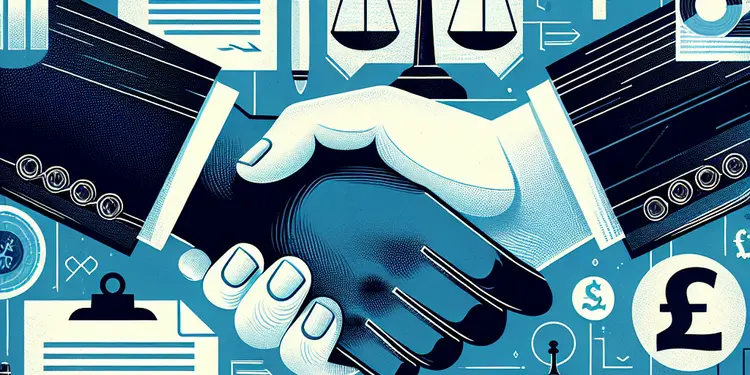
How does a buy-sell agreement help in resolving disputes?
Relevance: 51%
-

What initiatives are in place to address banking fee transparency?
Relevance: 50%
-
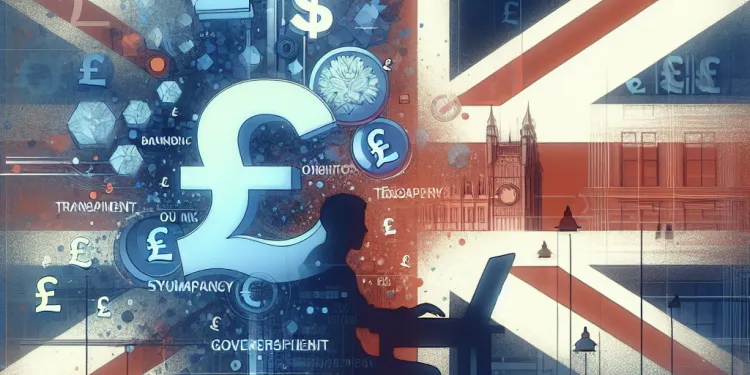
How can government policies influence transparency in banking fees?
Relevance: 50%
-

What role does a shareholder agreement play in resolving disputes?
Relevance: 50%
-

What are some examples of hidden fees in banking?
Relevance: 50%
-

How does technology help in enhancing transparency in banking fees?
Relevance: 49%
-

What fees should I avoid when choosing a new bank?
Relevance: 49%
-

Are there specific banking services more prone to opaque fee structures?
Relevance: 49%
-
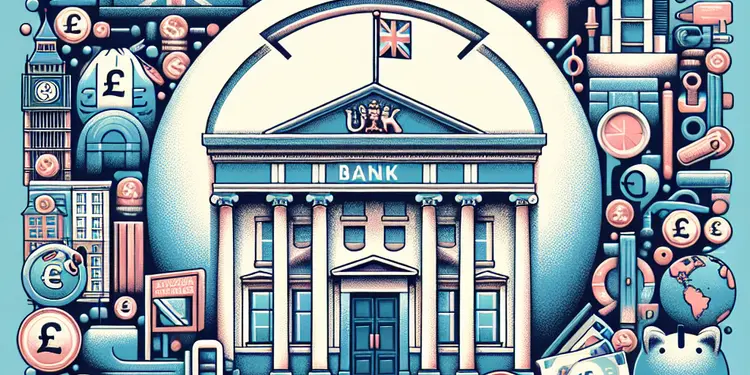
What fees should I avoid when choosing a new bank?
Relevance: 49%
-

How can consumers protect themselves from hidden banking fees?
Relevance: 48%
-

How can a shareholder dispute be resolved?
Relevance: 45%
-
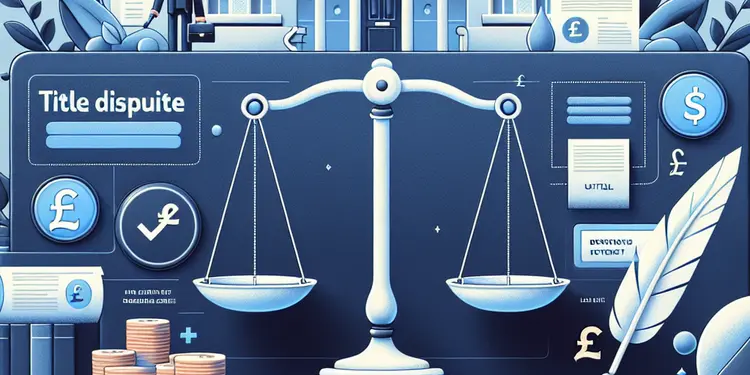
What is a title dispute?
Relevance: 44%
-

Can boundary disputes affect property values?
Relevance: 44%
-

Shareholder Disputes
Relevance: 44%
-

Are there any fees to claim money back?
Relevance: 43%
-

Company Director Disputes
Relevance: 42%
-
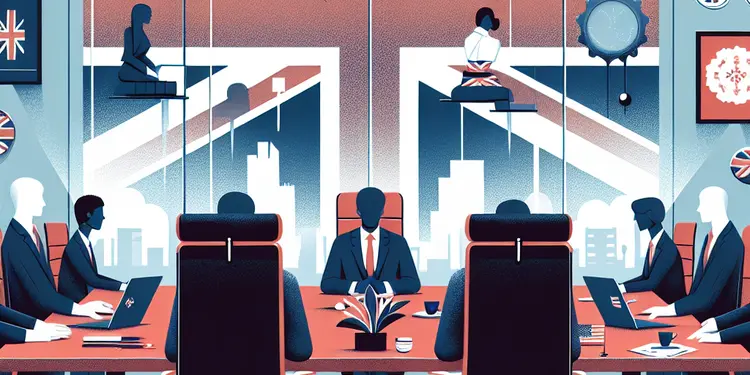
How can a director be removed if a dispute cannot be resolved?
Relevance: 42%
-
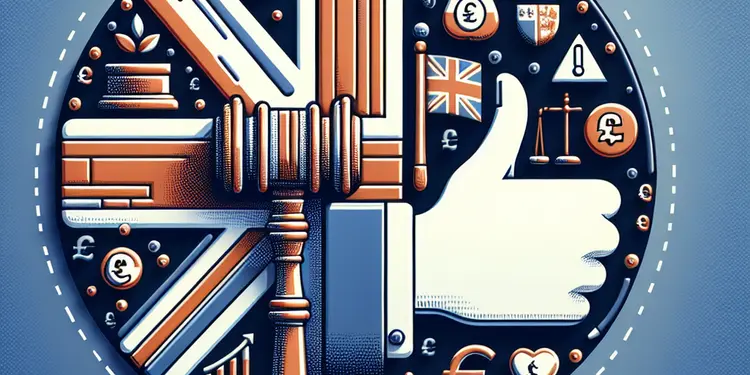
Can mediation be used to resolve a professional negligence dispute?
Relevance: 42%
-
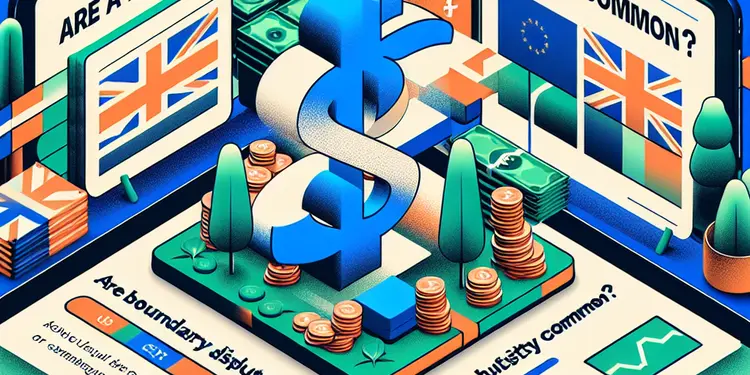
Are boundary disputes common?
Relevance: 41%
-

What is a boundary dispute?
Relevance: 41%
-

Are online banks cheaper than traditional banks?
Relevance: 41%
-
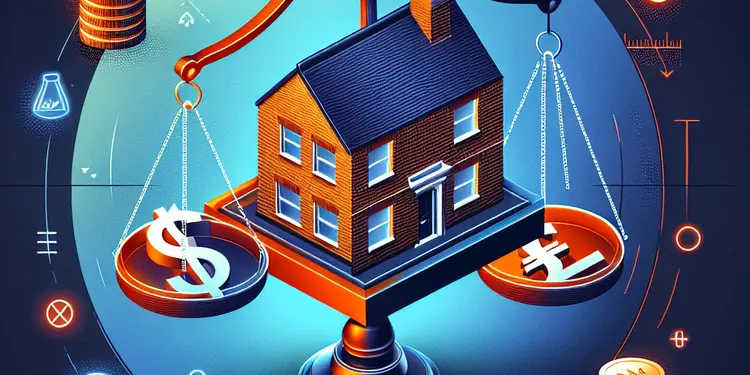
How are landlord-tenant issues resolved in property litigation?
Relevance: 41%
Understanding Banking Fees
Banking fees can often be a source of frustration for customers. These fees may include overdraft charges, maintenance fees, ATM usage charges, or foreign transaction fees. Banks in the UK are required to provide clear information about their fee structures, but disputes may arise when customers feel they have been incorrectly charged or misunderstood the terms.
Steps for Resolving Banking Fee Disputes
The first step in resolving a dispute over banking fees is to clearly identify and understand the charges in question. Review your bank statements and account terms to ensure that you were charged according to the agreed terms. Understanding whether the charge was mistakenly applied or not can streamline the complaint process.
If you believe you have been wrongly charged, contact your bank’s customer service. Banks like Barclays, HSBC, and Lloyds have dedicated customer service departments that handle fee disputes. Be prepared to provide specifics about the charge, including dates and amounts, and explain why you believe the charge was in error. Effective communication is key here, so remain calm and clear about your concerns.
Escalating the Complaint
If the initial contact with customer service does not resolve your issue, you can escalate the matter internally. Most UK banks have a formal complaints procedure outlined online or in banking literature. Ensuring you follow these procedures and keeping a record of all communications with the bank can be crucial for the resolution process.
Should the bank fail to resolve the dispute to your satisfaction, you may consider pursuing the matter with the Financial Ombudsman Service (FOS). The FOS is an independent body that handles financial disputes between consumers and UK-based banks. Before contacting the FOS, ensure you have given your bank the opportunity to resolve the issue, typically having waited up to eight weeks.
Using Alternative Dispute Resolution Methods
Beyond formal complaints, alternative dispute resolution (ADR) methods, such as mediation, may be suitable. ADR can be quicker and more cost-effective than going through a full legal process. In some cases, banks might be more willing to negotiate a settlement if a third party is involved, facilitating a mutually acceptable solution.
Customers might also consider seeking advice from consumer rights organizations or financial advisors to understand their options better and get support in disputing charges. Organizations like the Money Advice Service can provide free advice.
Preventing Future Issues
To prevent disputes over fees in the future, consider setting up account alerts for low balances, using budgeting tools offered by many banks, or opting for accounts with simpler fee structures. Regularly reviewing bank statements and maintaining an open line of communication with your financial institution can proactively minimize misunderstandings related to fees.
Understanding Banking Fees
Banking fees are extra costs you might have to pay when using bank services. These can include fees for spending more than you have in your account (overdraft), keeping your account open (maintenance), using an ATM, or spending money in another country. Banks must tell you clearly about these fees. If you feel you have been wrongly charged, talk to the bank calmly to fix the issue.
Steps for Resolving Banking Fee Disputes
If you think a fee is wrong, first find out what the fee is for. Look at your bank statements and the rules you agreed to when you opened your account. Make sure the charge matches what was agreed. If it's not right, you can talk to your bank’s customer service, like at Barclays, HSBC, or Lloyds. Remember to be clear and calm when explaining the problem. Tell them when and how much the charge was, and why you think it’s wrong. Communication helps solve problems.
Escalating the Complaint
If customer service cannot help, you can make a formal complaint. Banks have special steps for this, listed online or in their documents. Keep track of all your chats or emails with the bank. If the issue isn’t fixed, you can contact the Financial Ombudsman Service (FOS). The FOS helps when people have money issues with banks. Make sure you have tried to fix it with the bank first, usually waiting about eight weeks.
Using Alternative Dispute Resolution Methods
Besides formal complaints, there are other ways to solve the problem, like mediation. This can be faster and cheaper. Sometimes banks are happy to settle when a third person helps mediate. You can also talk to consumer rights groups or financial advisors for help. The Money Advice Service offers free advice.
Preventing Future Issues
To avoid problems with fees, set up alerts for low bank balances, use budgeting tools from your bank, or choose accounts with fewer fees. Check your bank statements often and keep talking with your bank to prevent confusion about fees.
Frequently Asked Questions
What is the first step to resolving disputes over banking fees?
The first step is to review your bank statement and any relevant documents to understand the fee and why it was charged.
How can I contact my bank to dispute a fee?
You can contact your bank by phone, email, or by visiting a local branch to speak with a representative.
What information should I have ready when disputing a fee?
Be prepared with your account number, transaction details, and any previous correspondence related to the fee.
Is there a time limit for disputing a banking fee?
Yes, banks typically require disputes to be filed within 60 to 90 days from the statement date.
Can a fee be disputed through online banking?
Many banks offer the option to dispute fees through their online banking platform or mobile app.
What should I do if the bank denies my dispute?
Request a written explanation for the denial and consider escalating the issue to a higher authority within the bank.
How long does it take to resolve a dispute over a banking fee?
The resolution time can vary, but banks typically aim to resolve disputes within 10 to 45 days.
What is mediation in the context of banking fee disputes?
Mediation involves a neutral third party who helps both the bank and the customer to reach a mutually agreeable solution.
Are there consumer protection laws for disputing banking fees?
Yes, consumer protection laws like the Fair Credit Billing Act help protect consumers from unfair fees.
Should I consider switching banks if fee disputes are frequent?
If fee disputes are frequent and unresolved, it may be worth considering a bank with better customer service or fee policies.
What role does a banking ombudsman play in fee disputes?
A banking ombudsman can provide an independent review and help resolve disputes between the bank and the customer.
Is it beneficial to keep records of all communications related to the dispute?
Yes, keeping detailed records can support your case and provide evidence if the issue escalates.
Can repeated errors in banking fees lead to legal action?
If errors are persistent and unresolved, legal action may be an option after exhausting all other dispute resolution methods.
What is a fee waiver and how can it be used to resolve disputes?
A fee waiver is when the bank agrees to remove the fee, which can be negotiated as a resolution to the dispute.
Can financial advisors help in disputing banking fees?
Yes, financial advisors can provide guidance on how to approach the bank and present your case effectively.
Are there fees that are generally not disputable?
Some fees stipulated in your account agreement may not be disputable unless the bank made an error.
Can social media be used to resolve banking fee disputes?
Some customers successfully resolve disputes by reaching out to their bank's customer service on social media.
What are arbitration procedures in banking disputes?
Arbitration is a formal process where a neutral third party makes a binding decision to resolve the dispute.
Can disputing a banking fee impact my credit score?
Disputing a fee by itself does not impact your credit score, but unpaid fees that are sent to collections might.
What can I do if I am not satisfied with the resolution offered by the bank?
You may consider seeking assistance from a consumer protection agency or legal counsel if the resolution is unsatisfactory.
How can I solve problems with bank fees?
First, look at your bank paper or online statement. This helps you see what money was taken and why.
How do I talk to my bank about a wrong fee?
If you see a fee on your bank account that you think is wrong, you can talk to your bank. Here’s how:
- Call the bank’s customer service phone number. You can find this number on the back of your bank card.
- Visit the bank's website and look for a "Contact Us" page. There might be a form you can fill out or an email address you can use.
- Go to a local bank branch and speak to someone who works there. They can help you too.
When you talk to someone, make sure you have your bank account number and details about the fee ready.
Tip: Ask a friend or family member to help if you find it hard to call or write to your bank.
You can talk to your bank in three ways. You can call them on the phone, send them an email, or go to the bank in person to talk to someone who works there.
What do I need to have ready to talk about a fee?
Before you start, make sure you have your account number, details about the transaction, and any letters or emails about the fee.
Can I ask about a bank fee after some time?
Banks want you to say something is wrong with your account statement in 60 to 90 days. This means you have about 2 to 3 months to tell them if you see a problem.
Can you challenge a fee using online banking?
You can ask questions or challenge a fee on your bank statement online. Here are some helpful steps: - **Find the Fee:** Look at your online statement and find the fee you want to talk about. - **Contact the Bank:** Use your bank’s website or app to send a message. - **Explain Clearly:** Say why you think the fee is wrong or why you want it changed. If you need help, ask someone you trust to assist you.Lots of banks let you ask about charges you don’t agree with using their website or app.
What can I do if the bank says "No" to my problem?
Ask the bank to write down why they said no. If you still need help, ask someone more senior at the bank.
How long to fix a problem with a bank fee?
Want to know how long it takes to fix a bank fee problem? Here is some helpful information:
- Sometimes, it can be fixed in a day or two.
- Other times, it might take a week or more.
- Your bank will tell you their rules and steps.
- Using a calendar to track days might help.
- Ask a friend or family member if you need help talking to your bank.
Remember, each bank is different, so be patient and ask any questions you have.
Banks try to fix problems quickly. It can take between 10 to 45 days to sort out any issues.
What is mediation in banking fee arguments?
Mediation is when two people have a disagreement, like about bank fees, and a friendly helper (mediator) helps them talk and find a solution. This helper does not take sides. They help both people agree on what to do.
If you want help understanding mediation, you can use tools like easy-to-read books or talk to someone who knows about it.
It is good to ask questions if you are not sure.
Mediation means a person who is not on anyone's side helps the bank and the customer to find a solution they both like.
Can you get help if your bank charges extra money?
Sometimes banks charge extra money, called fees. If you think this is not fair, there are rules to help you. These rules can help you ask the bank to check the fee.
To get help, you can:
- Talk to someone at the bank and explain why you think the fee is wrong.
- Ask a friend or family member to help you.
- Use a calculator to check the fee amount.
- Write down what happened in a notebook. This can help you remember what to say.
Remember, it’s okay to ask for help from others if you need it.
Yes, there are laws that keep people safe from unfair money charges. One law is called the Fair Credit Billing Act. It helps protect customers.
Should I change banks if I often have arguments about fees?
If you keep having problems with bank fees, you might want to think about changing to a different bank. Here are some steps to help you:
- Write down each time there is a fee problem.
- Talk to someone at your bank. Ask them to explain the fees.
- Look for other banks. See if they have lower fees.
- Ask your family or friends if they like their bank.
- Use the internet to find banks with good reviews.
Remember, it's your choice. Switching banks can help you save money!
If you keep having problems with bank fees and they don't get fixed, you might want to think about using a different bank. Look for a bank that is nicer to customers and has better rules about fees.
What does a banking ombudsman do in fee problems?
A banking ombudsman helps fix money problems with banks.
If you think your bank charges too much money in fees, you can talk to the ombudsman.
The ombudsman listens to both you and the bank to find a fair answer.
You can use pictures or talk to someone you trust to help understand better.
A banking ombudsman is a person who helps if you have a problem with your bank. They look at both sides and try to help solve the issue.
Should I keep notes of all talk about the disagreement?
It's a good idea to write down everything said about the disagreement. This can help you remember important details.
You can use voice notes or drawing to help you keep track if writing is hard for you.
Yes, writing down what happens can help you. It can show what really happened if things get worse.
Can banks face legal problems if they make the same fee mistakes?
Sometimes banks make mistakes and charge the wrong fees. If they keep making these mistakes, can someone take them to court?
If you think a bank keeps making fee mistakes, you can:
- Check your bank statement carefully
- Contact the bank to fix the error
- Ask for help from a grown-up if needed
- Use a calculator to make sure numbers add up
If the problems keep happening and are not fixed, going to a lawyer might be something you can do. But try all other ways to solve the problem first before doing this.
What is a fee waiver and how can it help solve problems?
A fee waiver means you do not have to pay money for something.
Sometimes, people argue or have problems. A fee waiver can help because it makes it free to start solving the problem.
If you get a fee waiver, it is easier to ask for help with your problem.
A fee waiver is when the bank says you do not have to pay a fee. You can talk to the bank about this if there is a problem.
If you find it hard to understand these words, you can ask someone to help you.
Can money helpers help with bank fees?
If your bank charges you extra fees, a money helper (financial advisor) might be able to help. They know a lot about money rules and can talk to the bank for you.
Ask questions if you're not sure and keep everything in writing. A trusted grown-up can help you understand what to do next.
Yes, money helpers can give you tips on how to talk to the bank and show them your plan in a good way.
Are there charges you cannot argue about?
Some fees in your account might not be changed unless the bank made a mistake.
Can we use social media to fix problems with bank fees?
Bank fees are extra charges that a bank might ask you to pay. Sometimes, people think these charges are not fair.
You can try to talk to your bank and ask them to help fix the problem. But did you know that you can also use social media for this? Social media are websites and apps like Facebook, Twitter, or Instagram where people talk to each other.
Here is how social media can help:
- Tell your bank about the fee problem by sending them a message on social media.
- Ask your friends and family for advice. They might know what to do.
- Look for people who had the same problem. See how they fixed it.
Remember, always be polite when you write on social media. Say what the problem is and what you want. This can help your bank understand and solve the problem.
Some people fix problems with their bank by talking to them on websites like Facebook or Twitter.
How does arbitration work when banks have disagreements?
Arbitration is a way to solve arguments.
Instead of going to court, both sides agree to let an expert decide.
This expert is called an arbitrator. The arbitrator listens to both sides and makes a decision.
In banking, if there is a dispute, arbitration can help solve it without long court processes.
Using drawings and step-by-step guides can make it easier to understand.
Arbitration is a meeting to help solve a problem. A person who is not part of the problem decides what happens.
Will saying a bank fee is wrong change my credit score?
If you are arguing about a fee, it won't hurt your credit score. But if you don't pay a fee and it goes to collections, then it might hurt your score.
What can I do if I am not happy with what the bank says?
If the bank gives you an answer you don't like, you can do a few things:
- Ask the bank to explain their decision again and more clearly.
- Talk to someone who can give you advice, like a friend or family member.
- Write down your problem and ask for help from an advice service. They can help you understand what to do next.
- Check if there is a special way to complain about the bank. They may have a group that deals with problems.
Remember, it's okay to ask for help!
If you are not happy with the answer you get, you can ask for help. You can talk to people at a place that helps protect buyers, or you can ask a lawyer for advice.
Useful Links
This website offers general information and is not a substitute for professional advice.
Always seek guidance from qualified professionals.
If you have any medical concerns or need urgent help, contact a healthcare professional or emergency services immediately.
Some of this content was generated with AI assistance. We’ve done our best to keep it accurate, helpful, and human-friendly.
- Ergsy carfully checks the information in the videos we provide here.
- Videos shown by Youtube after a video has completed, have NOT been reviewed by ERGSY.
- To view, click the arrow in centre of video.
- Most of the videos you find here will have subtitles and/or closed captions available.
- You may need to turn these on, and choose your preferred language.
- Go to the video you'd like to watch.
- If closed captions (CC) are available, settings will be visible on the bottom right of the video player.
- To turn on Captions, click settings .
- To turn off Captions, click settings again.
More Items From Ergsy search
-

How can disputes over banking fees be resolved effectively?
Relevance: 100%
-

Can customers dispute unexpected banking fees?
Relevance: 89%
-

How can a boundary dispute be resolved?
Relevance: 59%
-

Calls for Greater Transparency in Banking Fees as Complaints Rise
Relevance: 58%
-

Is mediation a good option for resolving boundary disputes?
Relevance: 56%
-

How can valuation disputes in buyouts be resolved?
Relevance: 55%
-

Is arbitration a viable option for resolving director disputes?
Relevance: 54%
-

How long do boundary disputes typically take to resolve?
Relevance: 54%
-

Do online banks have lower fees than traditional banks?
Relevance: 54%
-

What is the role of a company’s articles of association in resolving disputes?
Relevance: 54%
-

What feedback do customers give regarding banking fees?
Relevance: 53%
-

Do all banks have the same fee structures?
Relevance: 53%
-

What actions are consumer rights groups taking regarding banking fee transparency?
Relevance: 52%
-

How do banking fees impact financial inclusion?
Relevance: 52%
-

Why is there a call for greater transparency in banking fees?
Relevance: 52%
-

Why are some banking fees unexpectedly high?
Relevance: 52%
-

How can banks improve transparency regarding their fees?
Relevance: 52%
-

Is mediation an option to resolve eviction disputes?
Relevance: 51%
-

How does a buy-sell agreement help in resolving disputes?
Relevance: 51%
-

What initiatives are in place to address banking fee transparency?
Relevance: 50%
-

How can government policies influence transparency in banking fees?
Relevance: 50%
-

What role does a shareholder agreement play in resolving disputes?
Relevance: 50%
-

What are some examples of hidden fees in banking?
Relevance: 50%
-

How does technology help in enhancing transparency in banking fees?
Relevance: 49%
-

What fees should I avoid when choosing a new bank?
Relevance: 49%
-

Are there specific banking services more prone to opaque fee structures?
Relevance: 49%
-

What fees should I avoid when choosing a new bank?
Relevance: 49%
-

How can consumers protect themselves from hidden banking fees?
Relevance: 48%
-

How can a shareholder dispute be resolved?
Relevance: 45%
-

What is a title dispute?
Relevance: 44%
-

Can boundary disputes affect property values?
Relevance: 44%
-

Shareholder Disputes
Relevance: 44%
-

Are there any fees to claim money back?
Relevance: 43%
-

Company Director Disputes
Relevance: 42%
-

How can a director be removed if a dispute cannot be resolved?
Relevance: 42%
-

Can mediation be used to resolve a professional negligence dispute?
Relevance: 42%
-

Are boundary disputes common?
Relevance: 41%
-

What is a boundary dispute?
Relevance: 41%
-

Are online banks cheaper than traditional banks?
Relevance: 41%
-

How are landlord-tenant issues resolved in property litigation?
Relevance: 41%


